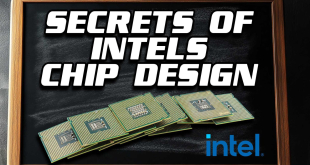If you service cars and don't have enough of the right tyres, then it can affect production. Same for decorators and the right kind of paint brush. Sure, there could be ways around the supply issue, but it's not ideal. With graphics, it comes down to wafers. KitGuru pulls out a glass tumbler and tries to hear the rumours through the wall.
Interesting messaging in the market right now, centring on the production of top end graphic cards for Q1.
The rumour goes that AMD had been considering moving more and more production across to Global Foundries, but GloFo has been struggling to meet AMD's delivery schedules and output requirements.
At the same time, nVidia and Qualcomm have focused their new designs on TSMC and, in doing so, have bought up almost all the available wafer slots.
If GloFo is unable to deliver, them AMD would need to get into swift negotiation for slots or risk not having enough 7000 series cards to go around.
In regular economics, a restriction in supply (of any kind) almost always leads to an increase in price. Will be interesting to see if this rumour is true and – if so – what effect it will have on the price and availability of AMD graphic cards?

KitGuru says: It's hard to overestimate just how hard it is for any foundry to compete with Intel. TSMC invests a huge amount of time, resource and – ultimately – money in making sure that it moved swiftly to each new process as it comes along. Having multiple customers, with multiple designs, means that TSMC is probably finding and resolving more problems than any single-customer production plant. Surely, that must lead to an advantage?
Comment below or in the KitGuru forums.
 KitGuru KitGuru.net – Tech News | Hardware News | Hardware Reviews | IOS | Mobile | Gaming | Graphics Cards
KitGuru KitGuru.net – Tech News | Hardware News | Hardware Reviews | IOS | Mobile | Gaming | Graphics Cards



One comment
Pingback: AMD unable to confirm timing on first TSMC APUs | latest techn